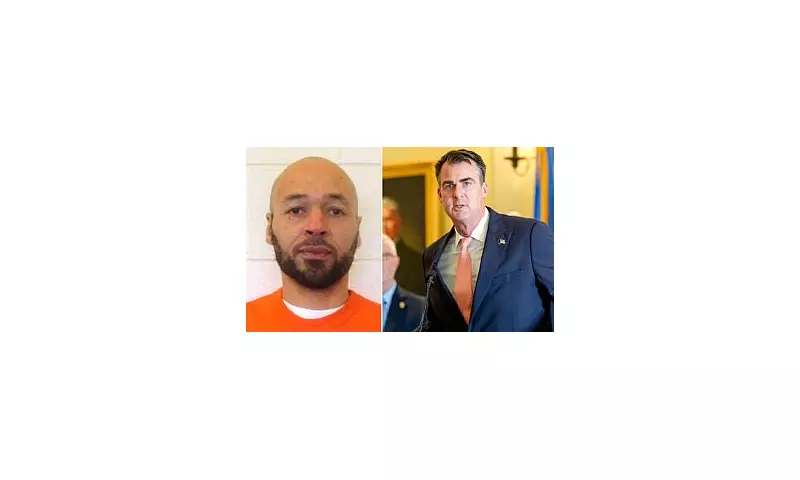
Last-Minute Reprieve for Death Row Inmate
An Oklahoma death row inmate came within minutes of execution on Thursday before receiving an extraordinary last-minute grant of clemency from Governor Kevin Stitt. Tremane Wood, 46, was scheduled to receive lethal injection at 10am at the Oklahoma State Penitentiary for the 2002 murder of 19-year-old Ronnie Wipf.
The dramatic intervention came at 10.01am, just as preparations for the execution were underway. Governor Stitt announced he was accepting the Oklahoma Pardon and Parole Board's recommendation to commute Wood's death sentence to life imprisonment without the possibility of parole.
Governor's Rare Clemency Decision
This marked only the second time in Governor Stitt's nearly seven years in office that he has granted clemency to a death row inmate. In his official statement, Stitt explained: "After a thorough review of the facts and prayerful consideration, I have chosen to accept the Pardon and Parole Board's recommendation to commute Tremane Wood's sentence to life without parole."
The governor emphasised that this punishment mirrored the sentence given to Wood's brother for their roles in the same crime, ensuring a violent offender would remain permanently off the streets. His executive order explicitly stated that Wood would never be eligible to apply for commutation, pardon or parole.
Controversial Murder Case Background
The case dates back to New Year's Day 2002, when Ronnie Wipf was fatally stabbed during a botched robbery at an Oklahoma City motel. Wipf, who grew up in a Montana colony of pacifist Christians known as Hutterites, was working with a farming crew in Oklahoma and Texas.
Prosecutors alleged that Wood and his brother, Zjaiton "Jake" Wood, had set up the victims by having two women pose as prostitutes. After the victims paid $210, the Wood brothers burst into the room wearing ski masks and trench coats. During the ensuing struggle, Wipf received a fatal stab wound to the heart.
Throughout his legal battles, Tremane Wood maintained that his brother was the actual killer, a claim supported by Zjaiton's testimony during the trial. Despite this, a jury found Tremane guilty of first-degree murder and sentenced him to death, while his brother received life without parole.
Legal Challenges and Victim Advocacy
Wood's defence team raised significant concerns about his original trial, including allegations that his court-appointed lawyer admitted to drinking and using cocaine during proceedings. This attorney later had his license suspended, and two other death row cases he handled were subsequently retried with both defendants being removed from death row.
Remarkably, Wood received support for clemency from unexpected quarters. Both Wipf's family and Arnold Kleinsasser, the surviving victim of the robbery, advocated against execution on religious grounds. Kleinsasser told media: "Being a Christian, I would be totally against it. I look at it from a perspective of how much I've been forgiven from God."
Wipf's mother, Barbara, similarly argued that authorities should "let him live", demonstrating extraordinary forgiveness.
Dramatic Execution Day Events
As the execution hour approached, Wood had already received his last meal and been moved to a cell adjacent to the death chamber. Prison spokeswoman Kay Thompson confirmed he had not yet been strapped to the execution gurney when the governor's decision was announced.
The emotional toll on those involved was immense. Jasmine Brown-Jutras, an advocate for the Wood family, described the experience as "really scary and really traumatising". Wood's son, Brendan, expressed both joy and concern about the timing, calling the last-minute nature of the decision "mental torture".
Meanwhile, Attorney General Gentner Drummond expressed disappointment with the governor's decision, having argued that Wood represented an ongoing danger due to continued criminal activity within prison, including gang involvement and drug offences.
The case highlights ongoing debates about capital punishment, the reliability of legal representation in death penalty cases, and the complex interplay between justice, mercy and victims' rights in the American criminal justice system.





